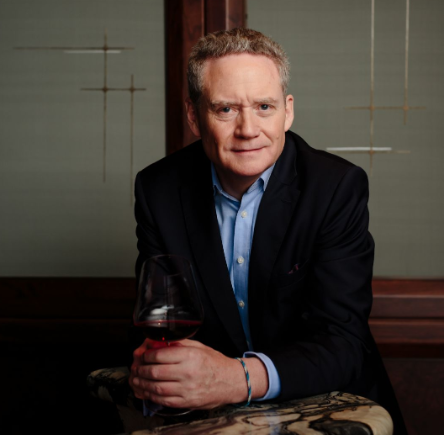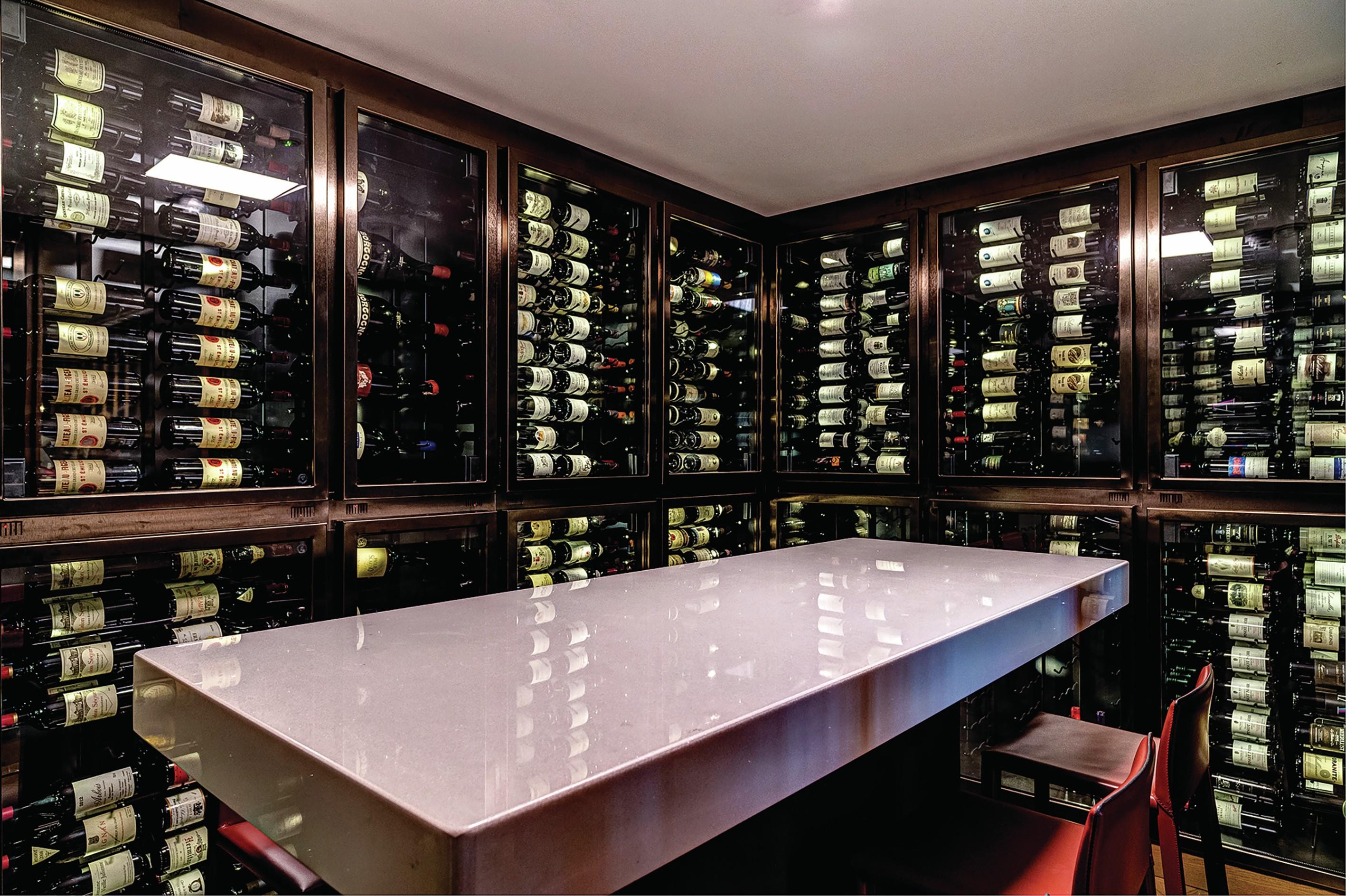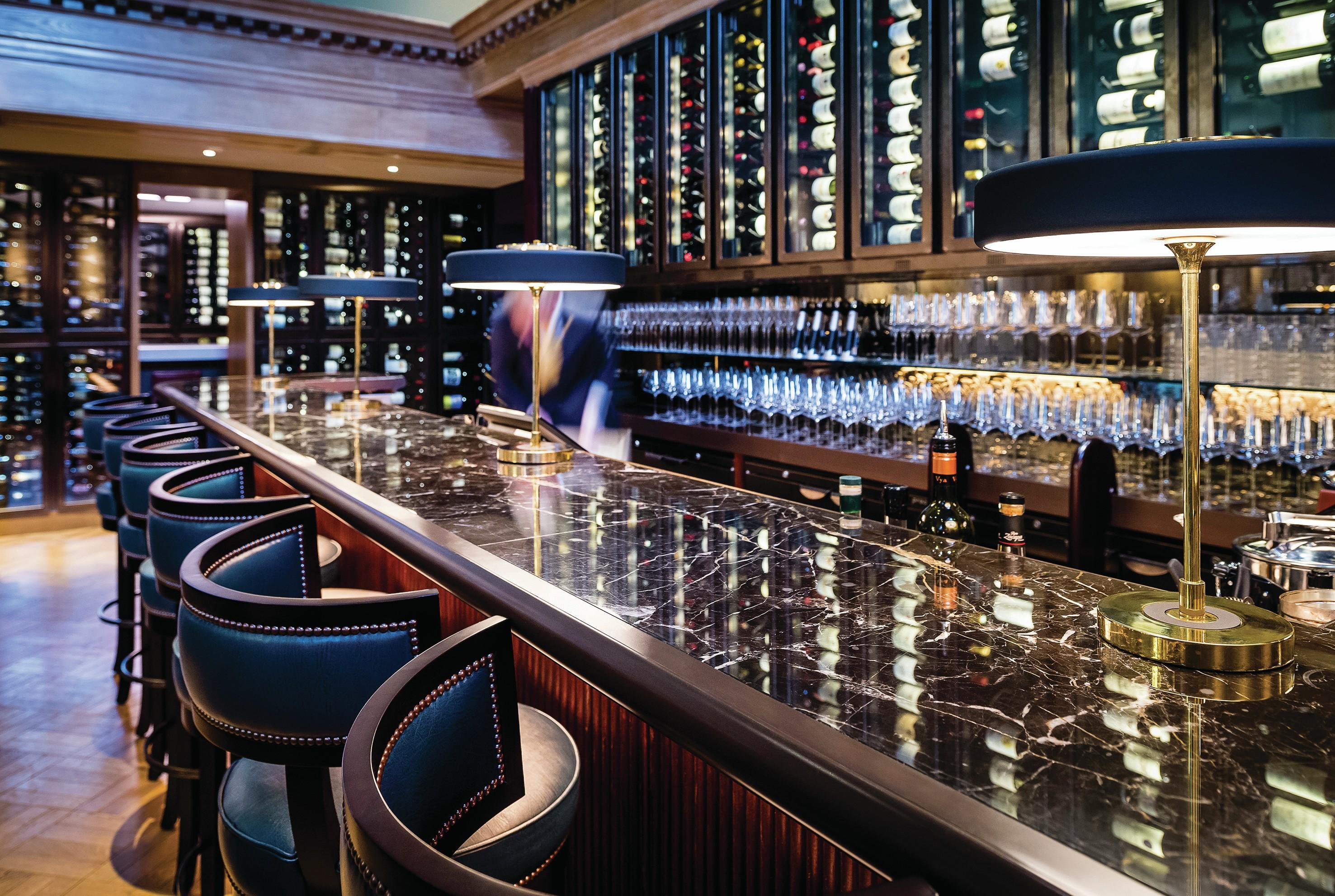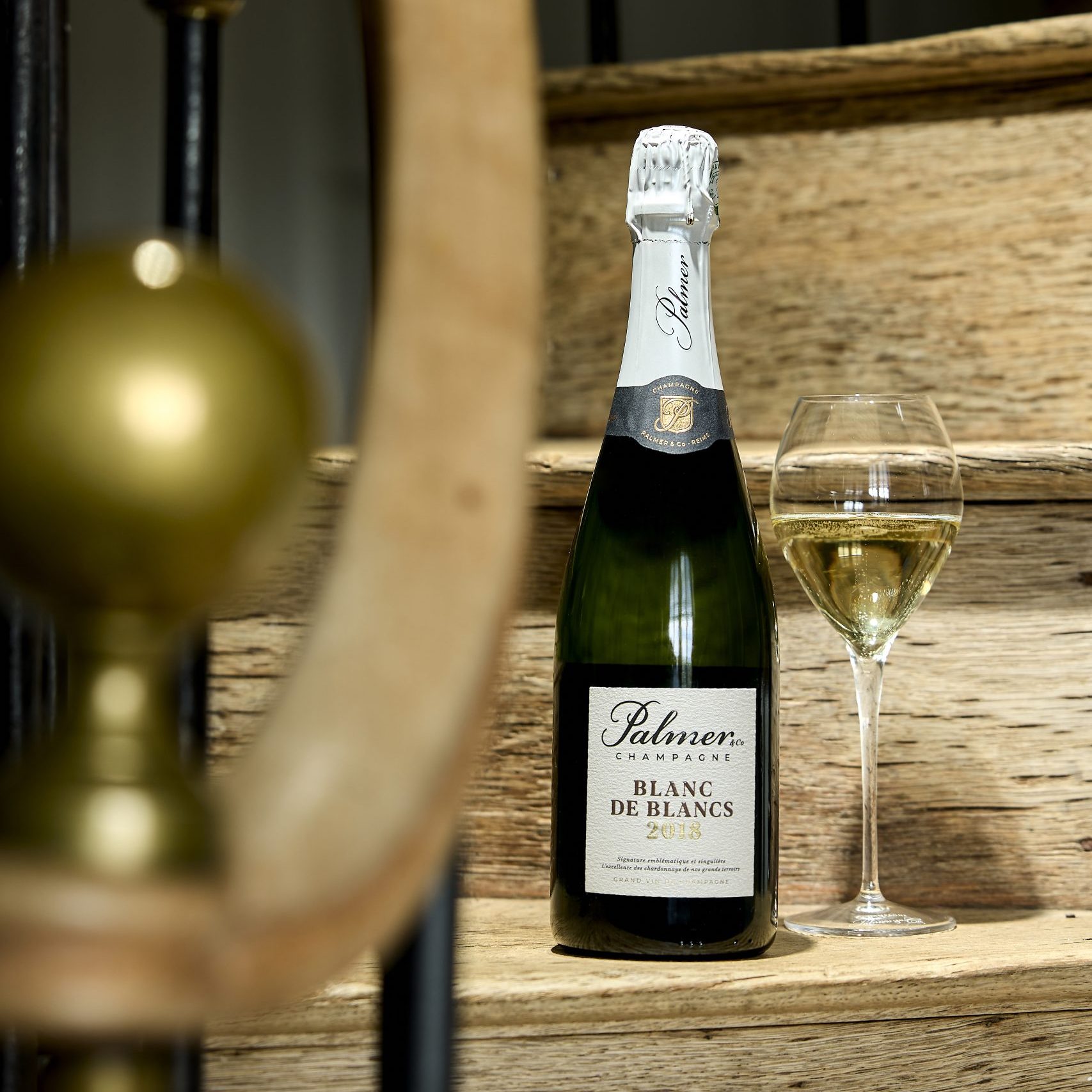The Big Interview: Grant Ashton
Grant Ashton, CEO and founder of 67 Pall Mall, tells Lauren Eads about targeting young members, the futility of Michelin stars and taking his brand global.

For someone who never intended to work in the wine industry, let alone hospitality, Grant Ashton has done a pretty good job of succeeding in both.
Next year will mark 10 years since the former hedge fund manager opened 67 Pall Mall in St James’s, London, and started on a path to becoming a global wine mogul. Although he scoffs at the suggestion, it’s not without merit. The London club remains a Mecca for wine lovers, with 6,000 wines on its list (800 by the glass), and the ‘67 Pall Mall’ brand is now global.
The team opened a high-altitude venue in the Swiss Alps resort of Verbier in 2021, a 15,000sq ft club in Singapore’s Orchard Road in 2022, and an en primeur club in Hong Kong in 2024 where “you swing a cat and hit all four walls”, with more venues in the pipeline. The company buys an enormous number of wines every year, and is the world’s biggest user of Coravin, says Ashton. But he’s the first to say that building a wine business on this scale was never the plan.
“If I’d understood how much time, effort and money it was going to take, I’d never have done it, absolutely zero chance,” he admits. “If I had turned to my wife and said: ‘By the way, darling, I’m going to give up a fabulously well-paid career to earn less and I’ll also be spending more time away from home’ – ridiculous. But it’s such great fun.”
Back in 2010, Ashton had visions of opening a wine bar in Marylebone, where he and a few like-minded friends could enjoy wines from their own collections, without paying the usual mark-ups, but they couldn’t find a venue.
GRAND OLD BUILDING
Instead, a very grand, very old building became available in St James’s – a Grade II Listed former bank, designed by Sir Edwin Lutyens in 1929. Did Ashton spot a gap in the market for a private members wine club and pounce? Not exactly. Even then, he had ideas of opening a winecentric restaurant, but a planning application was turned down by the local authority, which wasn’t keen on having any more restaurants or bars in St James’s. It did, however, approve of a club – and 67 Pall Mall opened in December 2015.
“This was an accident, to a degree,” Ashton says. “We thought a few hundred people might care about a wine club. We now have 4,000 members in London, 3,500 in Singapore, a few hundred in Hong Kong and just under 800 in Verbier, which only has 4,500 residents.”
Membership fees are crucial to the model of 67 Pall Mall, bringing in an additional income stream that allows Ashton to offer wines at prices far lower than is possible in a restaurant.
“I buy a bottle of wine for x, I add a small margin, and as long as I keep marking my book to the right price and keep my margins wafer-thin, subsidised by my membership fee, I don’t care [what the price is],” he explains.
In London, his “very modest” fees run to £2,500 a year for an individual membership (£3,000 for joint), plus a £1,750 joining fee. Ashton also offers under-30s reduced membership fees (£1,250 a year), allows them to pay monthly and waives the joining fee. “We want those young people, and the average age of our members is actually going down,” he adds.
Clearly he depends upon a healthy supply of deep-pocketed, wine-loving clients. But Ashton is too professional to let slip any of the big names that grace his members’ list, or the blockbuster bottles he might have shared with them (save for a Cheval Blanc 1947 with “dear old” Tom Harrow, aka The Wine Chap). Needless to say, some of Pall Mall’s members are almost as high-profile as its wines, and they run the gamut from trade regulars and corporate heads to politicians, celebrities and, perhaps, a prince or two.
“Fine wine is often a marker of a life well-lived, and some very interesting people love fine wine,” is as much as he’ll say.
“The beauty of a club is that nobody tends to approach other people in an unwanted way. If you’re a fancy film star or politician, no-one is going to start berating them or saying how much they love their last movie. I’ve sat next to some quite serious people in London restaurants. I witnessed the break-up of one celebrity couple, and that was the end of that in the Press the next day. But nobody went up to them, because London is very cool. London will sit there and go: ‘You crack on…’”

But, despite its exclusive veneer, 67 Pall Mall is not elitist, Ashton insists.
Partner Content
“Everyone says: ‘You must be a club for billionaires and millionaires.’ We really aren’t. We’re about people who love wine. Now, a whole bunch of richer people can afford to pay my membership fees and buy wine at the price it is right now. But we’ve got members that are like my kids, 20-somethings. They’ve not got a lot of money, but they love wine.”
Four venues are now operational worldwide, but Ashton is far from finished with building his empire. Sites in Burgundy and Bordeaux are due to open in the next two years: 67 Pall Mall Bordeaux will spread across four floors and feature an 8.2-metre tall wine tower and a rooftop terrace, while 67 Pall Mall Beaune will be located inside a historic townhouse built in the 1780s, 200 metres from the Hospices de Beaune.
Meanwhile, 67 Pall Mall Melbourne will open in 2025, occupying the top three floors of a 15-storey building that was once the headquarters of a bank. At 21,500sq ft, it will be the group’s biggest venue and already has 600 members eagerly anticipating its opening.
What’s driven this global expansion? Profitability, of course, but also space, which they simply “ran out of” in London. But Ashton is a shrewd businessman and knows how to make the best of a fluctuating global market. He’s already set his sights on Bangkok, where import tariffs have been slashed from 54% of the declared value to 0% indefinitely, and excise tax dropped from 10% to 5%. Shanghai is another prospective city, where he “did 22,000 steps” scoping out suitable locations.
“I don’t get out of the back of a taxi and say: ‘Yeah, this is nice.’ I pound the streets in the same way as I’ve done in Mumbai, Hong Kong and a million different cities. That’s kind of how I do it.”

Ashton can list a dozen more cities that he’s sussing out, including Taiwan, Seoul, Sydney and Jakarta, as well as some that he’s keeping under wraps. But there is an altruistic intent also. The aim isn’t to “make squillions”, he says, but to support local wine regions and help producers find more routes to market.
As for the wider industry, Ashton is critical of wine’s global distribution model, which he says “everyone knows is broken”, bogged down by “layers and layers of people and intermediaries”, and bemoans its pricing model, with too many wines priced “off what they were last year, or when they last sold”, despite multiple global shocks to the economy.
He hastens to add that he has no solution. But, for those navigating the cut-throat hospitality sector, Ashton does have some painfully honest and simple advice, which is to maintain cash flow, and lots of it. Most of Ashton’s venues have needed £10mto £20m-worth of investment, so having access to cash via private sources and shareholders has been paramount. Not a bank, he adds, which “won’t lend you money unless they know you don’t need it”.
But Ashton’s connections in the financial world have clearly been an advantage in this regard. “I’d love to think I could have done this at 20 or 25, but I didn’t know anyone, and who was going to trust some finance guy at the age of 30 to lend me millions?” he says.
Today, Ashton has 225 investors backing the London club, 106 in Singapore, 80 at both Beaune and Bordeaux, while Melbourne is on track to reach 200.
“Somebody once said to me: ‘Don’t go bust running a profitable business,’ because there’s a difference between being profitable, and having enough cash to sustain what you’re doing and get you through,”he explains.
This was especially true during the Covid-19 pandemic, when 67 Pall Mall was able to retain staff on full pay. “That’s where a lot of hospitality gets it wrong,” Ashton says. “You can be doing amazing things, but you can’t eat a Michelin star. You can’t pay the staff on great reviews. You need access to cash that allows you to survive, to get through it.”
He adds: “The key to any hospitality business is to either be incredibly profitable or just have amazing cash flow.”
Luckily for Ashton, he’s been able to achieve both – and there’s nothing accidental about that.
Grant Ashton at a glance
Grant Ashton spent 30 years running trading floors in London’s financial district before pivoting to the wine industry. He began his financial career at Samuel Montagu & Co, also working for UBS, Salomon Brothers and Barclays, where he was head of European credit trading at Barclays Capital. He later became CEO of Infinity Capital Markets and a partner in a hedge fund at Omni Partners LLP, before leaving to focus on 67 Pall Mall (named after the building’s address but which also tallies with his birth year, 1967), which opened in St James’s in 2015. The members-only club has since opened spots in Verbier and Singapore, and will open a new site in Melbourne next year. Ashton lives in Singapore, and continues his search for future clubs worldwide.
Related news
The big interview: Tyrone Reid




